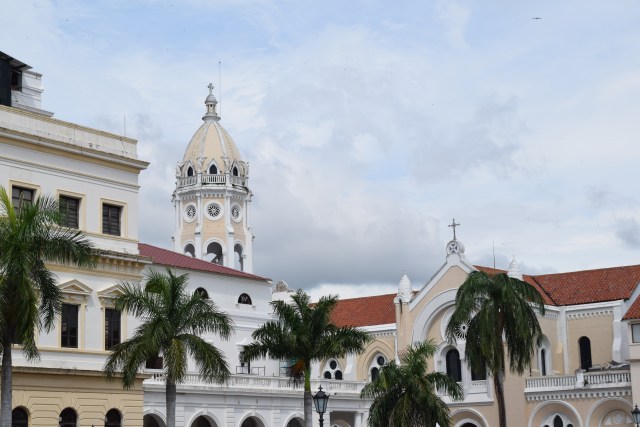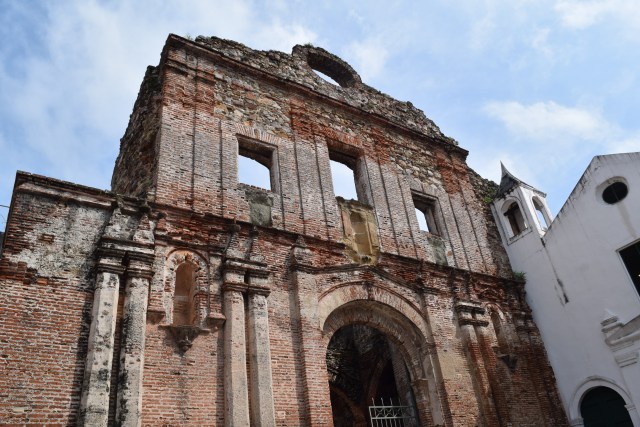If you go to Panama City, it is important that you take time to visit Casco Viejo, which is the historic district in the city. Originally established in 1673 by the Spanish, it is now a UNESCO World Heritage Site and home to a variety of historic buildings, churches, restaurants, shops, and hotels. As you walk the streets of Casco Viejo you will find a wonderful mix of architecture that spans the 350+ years of its history. Depending upon the time of day, it can be quite busy, especially on the weekend, but not so busy that you can’t enjoy all of the sights.





Although you can hire a guide to take you through Casco Viejo, we felt that it was easy enough to navigate and learn about the various historic sites without the need for a guide or the hassle of dealing with a group tour. All of the signs were in both Spanish as well as English, so it was easy to understand what you were seeing and there is plenty of information on each of the sites in tourist books, maps, and the internet. We started our tour of Casco Viejo at Plaza Herrera where we enjoyed the park with its Christmas decorations as well as the statue of General Tomas Herrera. We were in Panama City days before National Independence Day, so many of the buildings were adorned with flags, buntings, and banners.





Our next stop was at Iglesia Santo Domingo and the Flat Arch (Arco Chato), which is a 17th century church and convent that was destroyed by fire in 1756 and never rebuilt. From there, we made our way down to Plaza Francia, which was once the main square of the city. Today, it provides wonderful views of downtown Panama City as well as hosts a walking street that is lined with local artists selling traditional Panamanian arts and crafts.





There are several wonderful churches within Casco Viejo such as Iglesia San Francisco de Asis, which is the smallest, but perhaps one of the prettiest. It sits on Plaza Bolivar, which is pretty much the heart of Casco Viejo. The beautiful Catedral Metropolitana is certainly an important feature within the city as is La Iglesia de La Merced with its unique architecture. There is also the Iglesia de la Compania de Jesus, which was destroyed by a fire in 1781 and later damaged further by an earthquake in 1882. We were fortunate that it was open the day that we visited as we were in Casco Viejo on several other days and the gate was locked, keeping visitors on the outside of the building.





The presidential palace is also located in Casco Viejo, although you aren’t allowed to enter as it is still the residence of the president of Panama. The National Theatre was closed for renovations while we were there, but we read that it is worth visiting as it is supposed to be beautiful on the inside. The Canal Museum is certainly worth visiting as it provides not only a history of the Panama Canal, but it also provides insight into the history of the isthmus in general. We were fortunate to catch part of a dance competition in one of the plazas during our visit, which a unique cultural experience.





If you are looking for souvenirs, Casco Viejo is certainly the place to go. There are many shops selling local items as well as typical tourist items. We ate dinner almost every night in Casco Viejo as there are so many restaurants to choose from. Without a doubt, any visit to Panama City should include spending time in this wonderful historic district. You will likely find yourself caught in a downpour at some point during your time in Casco Viejo, so use that opportunity to join the locals in a pub or café as they watch the rain quickly come and go.







Great architecture in Panama City.
Pingback: Top Things to See and Do When Visiting Panama City, Panama – Living The Q Life
Pingback: The Weathered Buildings of Panama City, Panama – Living The Q Life